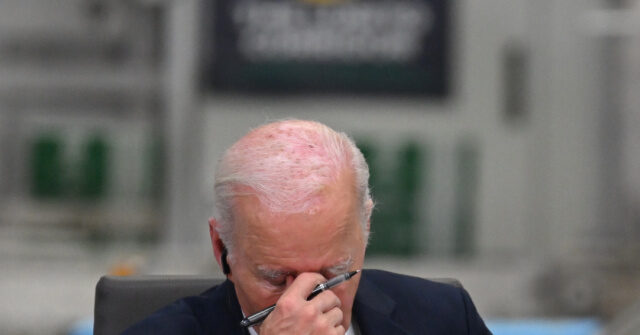During a recent summit in Angola, President Joe Biden was observed appearing drowsy, closing his eyes for about 80 seconds while discussions focused on African railway development. This moment drew attention as Biden had made a significant commitment during his trip, pledging $2.5 billion in U.S. taxpayer funds to support the establishment of a railway corridor across the continent. He expressed enthusiasm for rail travel, assuring Angolan President João Lourenço of his intent to return and experience the train journey firsthand. Biden’s remarks underscored his belief that Africa has been overlooked in global development but emphasized a renewed focus on the continent’s potential.
Biden’s physical state during the summit raised questions among observers, as he closed his eyes for brief periods not just once but twice during discussions. Comments made by the Daily Mail highlighted an instance where his hand twitched and he dropped an item, further indicating his surprising level of fatigue during a high-profile international gathering. The event was not an isolated incident; Biden has previously been noted for appearing to doze during key moments, such as during the opening speeches at the 2021 Cop26 summit in Glasgow, which focused on global climate initiatives.
This pattern of drowsiness has become a point of discussion, particularly in light of Biden’s acknowledgment of his need for more rest. In early July, he revealed to governors that he planned to limit event scheduling to earlier in the day, choosing not to engage in activities after 8:00 p.m. His candid admission included a light-hearted comment questioning the state of his mental alertness, indicating potential self-awareness about the demands of his position. This aspect of his behavior may resonate with voters and observers who are concerned about the stamina of political leaders in high-pressure roles.
Responses to Biden’s fatigue have varied, with critics raising alarms about his fitness for office, while supporters argue that such moments are human and not necessarily indicative of serious issues. The narrative around his energy levels often intertwines with broader discussions regarding age, leadership capabilities, and the challenges faced by older public figures in modern politics. As the 2024 presidential election approaches, Biden’s vitality and engagement in public and international discourse could hold significant weight in voters’ perceptions.
Beyond the immediate implications of Biden’s drowsiness, the significant financial commitment to African infrastructure signals a strategic pivot in U.S.-Africa relations. Biden’s assertions that “Africa has been left behind for much too long” reflect a desire to foster development and partnerships that can reshape the continent’s future. As Biden emphasizes renewed U.S. engagement with African nations, the outcomes of such initiatives will likely be closely monitored and debated in both domestic and international spheres.
As a political figure, Biden’s actions, both in moments of fatigue and in his commitments abroad, reveal layers of complexity in leadership. The balance between personal health and public duty exemplifies the trials that accompany a demanding office, raising essential discussions about what is expected of leaders in the contemporary political landscape. In a world where political dynamics are shifting, ensuring coherent engagement with diverse global challenges, such as infrastructure development, reflects not only international policy flow but also domestic confidence in leadership.

